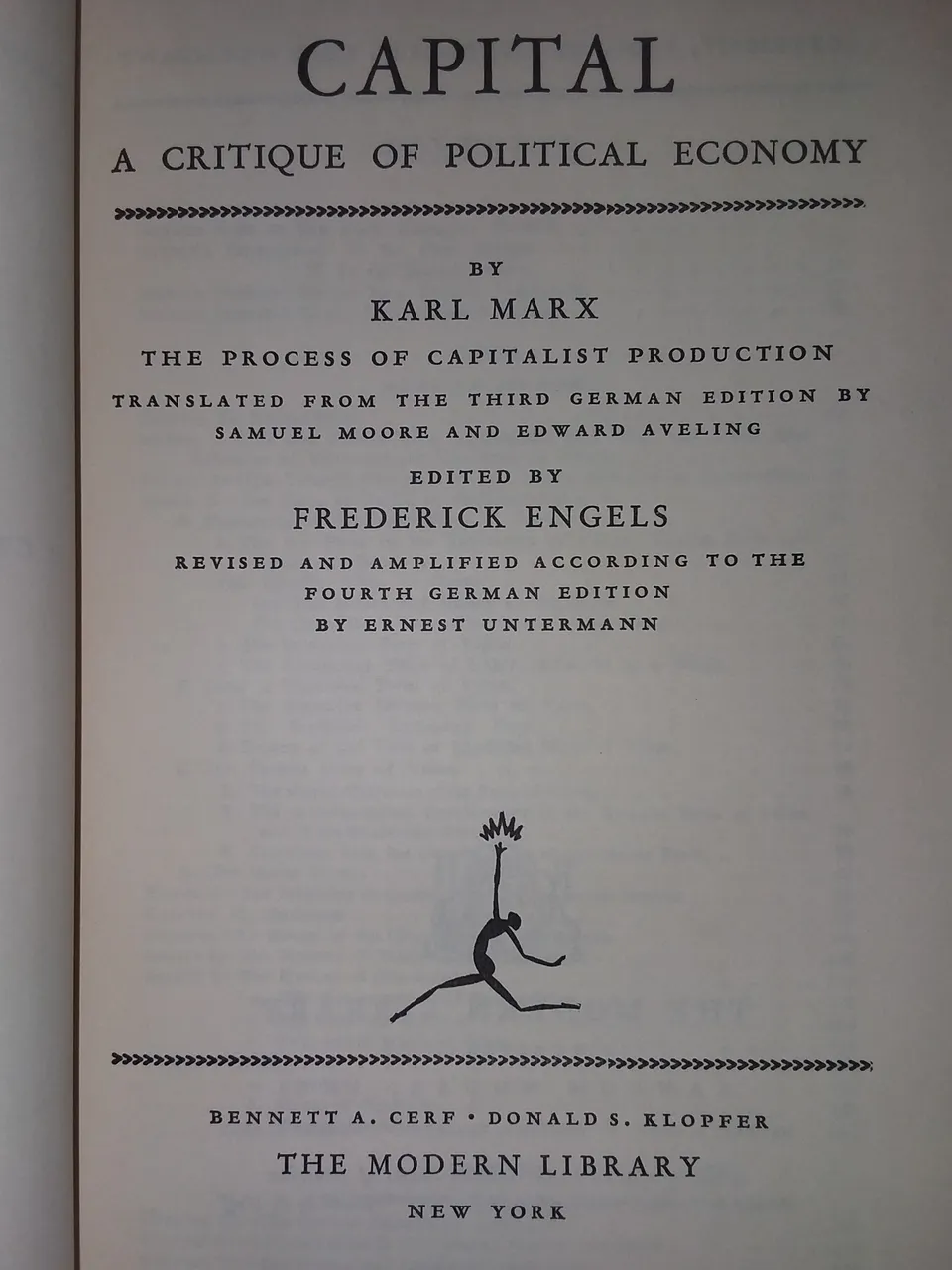It has been a while since my last installment in this series as I plod through Marx. I have been busy with other matters, so HIVE has been somewhat neglected in general. I do plan to proceed, so here goes with a new post.
As for the book itself, I find no joy in it. The economic insights here are often as irritating as flat-earther discourse on gravity as a simple manifestation of density, ignoring the mass-ive question of what density is in the first place. The labor theory of value ignores, that people labor because they anticipate value arising as a consequence of the labor, and this is always to some degree speculative, not any kind of mathematical certainty.
The risk in entrepreneurial activity and invention is completely outside the scope of anything I have read thus far. Marx seems mired in a distorted economic model where all exchange is a zero-sum game, progress just happens by chance, and all labor is interchangeable mathematically.
Perhaps I will yet be surprised, though. After all, it is still early in this book.

Read the introduction to this series here.
Part 1
Part 2
Book I, Part I, Chapter II: Exchange
It is plain that commodities cannot go to market and make exchanges of their own account. We must, therefore, have recourse to their guardians, who are also their owners.
Ugh. So begins this chapter, which is at least shorter than the last. I don't know whether this clunky prose is a consequence of translation or inherent in the source material, but even allowing for the style of the time based on other 19th-century books I have read, this is miserable work.
But we are here to critique the ideas, not just the presentation. Unfortunately, there is little of substance here. He builds on the shaky foundation of his previous chapter.
What chiefly distinguishes a commodity from its owner is the fact, that it looks upon every other commodity as but the form of appearance of its own value. A born leveller and a cynic, it is always ready to exchange not only soul, but body, with any and every other commodity...
Marx still leans into the equivalence of labor creating equivalent value, and all exchanges being a mathematical equation, even though he acknowledges that different commodities have different use-values to different people. I suspect this paradox of his system will never be addressed. It certainly doesn't seem to be in this chapter. The rest merely expounds on how equivalent values may be calculated.
There is considerable discussion of simple barter, and an introduction of the concept of money, although it is not very sophisticated. He does seem to approach several key attributes that led to gold and silver becoming monetary commodities, including portability, divisibility, and fungibility, but the issue is left vague. There is a footnote referring to other works by Marx, but there seems to be nothing here beyond even more assumptions of equivalent value in exchange.
However, the next chapter promises to conclude Part I with 56 pages of discourse on money, so we shall see.